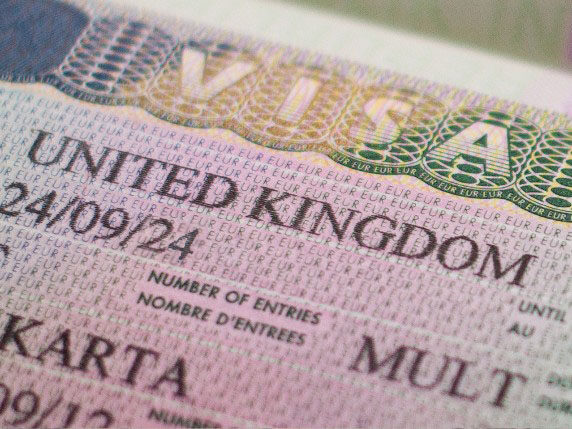On 4 December 2023, the Home Secretary, James Cleverly announced significant updates to the UK’s immigration rules that are scheduled to come into force as of Spring 2024. The changes have been proposed following the record levels of migration to the UK (745,000 in 2022). The government has announced further clarifications to their proposals on 21 December 2023.
These changes are aimed at what the Home Office describes as ‘the most extensive restrictions on UK migration to date’ and an effort to curb the employment of cheap labour from other countries. The Government's perspective is that by tightening recruitment from overseas, focus can be put on the growth of the UK’s domestic workforce.
This ‘five-point’ plan is as follows:
- Health and Care visas: Care workers will not be able to bring family dependants to the UK and care firms will need to be regulated by the Care Quality Commission (CQC).
- Skilled Worker minimum salary: This will be increased from £26,200 per annum to £38,700 per annum – a near 50% increase, with exceptions for the care industry and those in education on national pay scales, eg teachers.
- Shortage occupation list: The Government proposes to remove the 20% discount on their salaries, as well as reduce the roles qualifying as shortage occupations, if not scrapping the list altogether. These changes will be made in time for April 2024.
- Family visas: The minimum salary threshold for families wanting to bring partners to the UK will be increased from £18,600 per annum to £38,700 per annum. Further to significant criticism of this increase and its extensive impact, the government has confirmed that salary threshold will now be increased to £29,000 “initially”. At a later stage, this will be increased to £34,500 and then to £38,700. They have also clarified that they will remove the additional child element to the minimum threshold.
- Student visas: The Graduate visa route will be reviewed by the Migration Advisory Committee to ensure it is not being abused. Students will not be allowed to bring family dependants to the UK from January 2024, unless they are studying for a research postgraduate programme.
As far as work visas are concerned, the UKVI have clarified the following including that there will be transitional provisions to cover those already in the Skilled Worker route:
- They will raise the individual occupation ‘going rate’ thresholds in line with the median full-time wage for equivalent jobs in 2023 as well as the general threshold which is increasing from £26,200 to £38700 per annum. These will be introduced in April 2024.
- Health and Social Care visas will be exempted from these increases as will those in education on national pay scales, eg teachers.
- Transitional provisions for Skilled Workers mean that they will be exempt from the new median salary levels when they change sponsor, extend or settle but their pay would be expected to increase at the same rate as resident workers and would be subject to the updated 25th percentiles when they next make applications.
- Changes for workers in the care industry will be implemented in January 2024. Those already with visas can continue to remain with their dependants but those applying after the changes for a visa for the first time will not be able to bring in their dependants or have them remain with them.
Senior Business Immigration Solicitor, Fozia Iqbal says,
Coupled with the planned increase to the health surcharge expected in January 2024, these changes will no doubt make filling vacancies for employers both more difficult and more expensive if not completely prohibitive.
Fozia adds:
By removing the 20% discount on the salaries for these roles, the Government will be trying to ensure that employers are genuinely only recruiting foreign workers where they are struggling to fill these roles, as opposed to it being more economical for them to do so because they can offer them a reduced salary. The concern is, however, that usually these are roles in the technology or engineering sector for example, where skills are still in short supply in the UK. Recruitment in this market is highly competitive and settled workers often demand high salaries which employers may struggle to meet. No doubt this will have a detrimental impact on business development and growth in certain sectors.
The changes proposed to Health and Care visas, ensuring that workers in this sector cannot be accompanied by their family members and dependants, will impact the numbers of workers choosing the UK as a potential work destination. This is a sector which is notoriously short-staffed but has attracted a large number of foreign workers over the last year and the proposed changes can only make recruitment for this sector more difficult.
The Government has proposed increasing the minimum salary to be sponsored for a Skilled Worker to £38,700 per annum from the current £26,200 per annum with exceptions for the care industry. This is almost a 50% increase, and this will significantly inflate the salary burden for businesses. This will, however, also ensure that any abuse by employers to keep salaries artificially low by recruiting from abroad is curbed.
Employers with sponsored employees on Skilled Worker visas on low salaries would be encouraged to review these and ensure that they will meet salary requirements when extending and, if necessary, consider bringing forward extension applications or switching graduates and other low-income employees on this route prior to the changes in April 2024 to avoid being caught out by the changes. Looking ahead, employers and businesses would be encouraged to review their budgets for recruitment and plan ahead accordingly.







